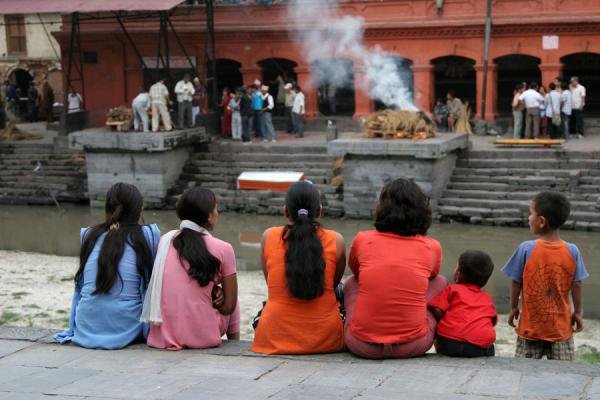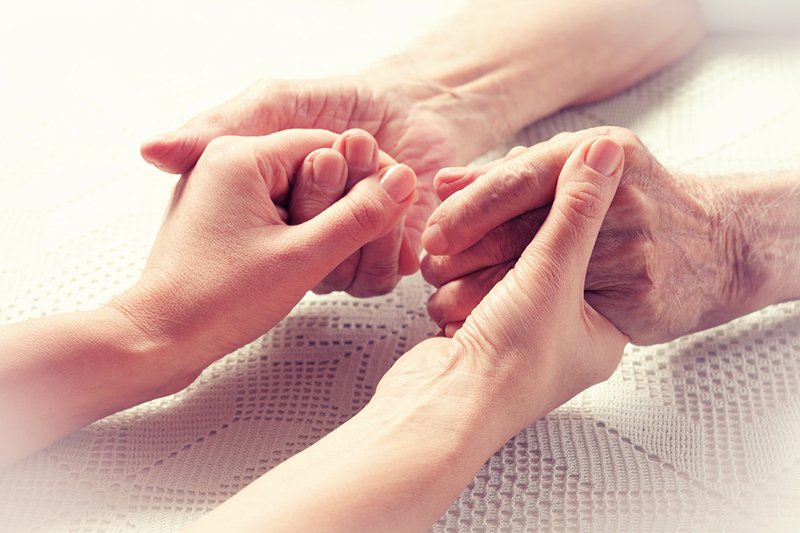“We can’t wait anymore,” the pandit told the family. Everyone looked at each other awkwardly, in total silence, when the grandfather blurted out, “Bas 2 aur minute. Woh aata hi hoga.”
Shreya stood right there, next to her dear father’s lifeless body, but this was not the Shreya that I’d known. The one that I knew would get emotional at the drop of a hat but this woman stood there as strong as concrete; not a tear drop on her cheek.
Her brother moved abroad looking for greener pastures while she decided to not get married and stay with her old man to take care of him. Uncle was too old to take care of himself and aunty, who was pretty old herself, could barely manage the home, leave alone her frail, sick husband.
Yet, the family waited for ”the beta” to come home and cremate the body.

This got me thinking.
We Hindus have some bizarre traditions as it is but what’s with the daughter not being allowed to be there at her own father’s cremation and light his funeral pyre? And when she does, why does it have to ‘create history?’

You create history when you do something groundbreaking. We women would love to create history to be the first one to discover a planet, or be the first woman to be a part of an unexplored avenue, and NOT to light our very own father’s funeral pyre.
So, I did some research and asked my family and a pandit about the tradition.
Here’s all that I got to know.
Hindu religion doesn’t allow women to attend funerals because it is believed that they are too weak and emotional to witness a dead body being burnt. The cremation is mostly done by the son in the family, in whose absence, another male member cremates the body. It is also said that Hindu families want a son because being cremated by one helps you attain moksha or salvation.

I was also told by a pandit that since women are considered to be the giver of birth, they shouldn’t be around at the time of death. But I fail to understand this analogy.
When we’re brought up with the same values, traditions and respect as our brothers our entire lives, why then does the religion suddenly think it is okay to outcast us from our very own parents’ funerals?
When we have daughters walking hand in hand with sons to take care of a family, why is it considered unholy to have the same daughters around at the time of death?
When daughters continue to take care of their family despite getting married and going to another house making sure the parents live an enriching life, why do we think it’s okay to not include her in their death?

The sad part is that this is not the only bizarre custom that we follow. Since time immemorial, we’ve continued to blindly obey baseless traditions in the name of religion.
The Manusmriti suggests that women should be controlled and kept under watch because they can’t be trusted. This is only one of the many, many examples of the step-motherly treatment meted out to women because of scriptures written centuries ago.
Isn’t it ironic that we Hindus bow our heads in front of goddesses but when women want to pay their respects to these very goddesses when they are menstruating, they are asked to stay away from the temple?
DON’T visit the temple when you are menstruating.
DON’T touch the pickle.
DON’T enter the kitchen.
DON’T dress-up if you’re a widow.
DON’T be a part of celebrations because it will be an apshagun.
DON’T show your face to elders. Cover it with a ghungat.
And the list goes on.
It’s 2017! So why does society expect us to follow these silly rules blindly?
And most importantly, when we have abolished traditions like the Sati, among others, why are we not questioning these customs?

















